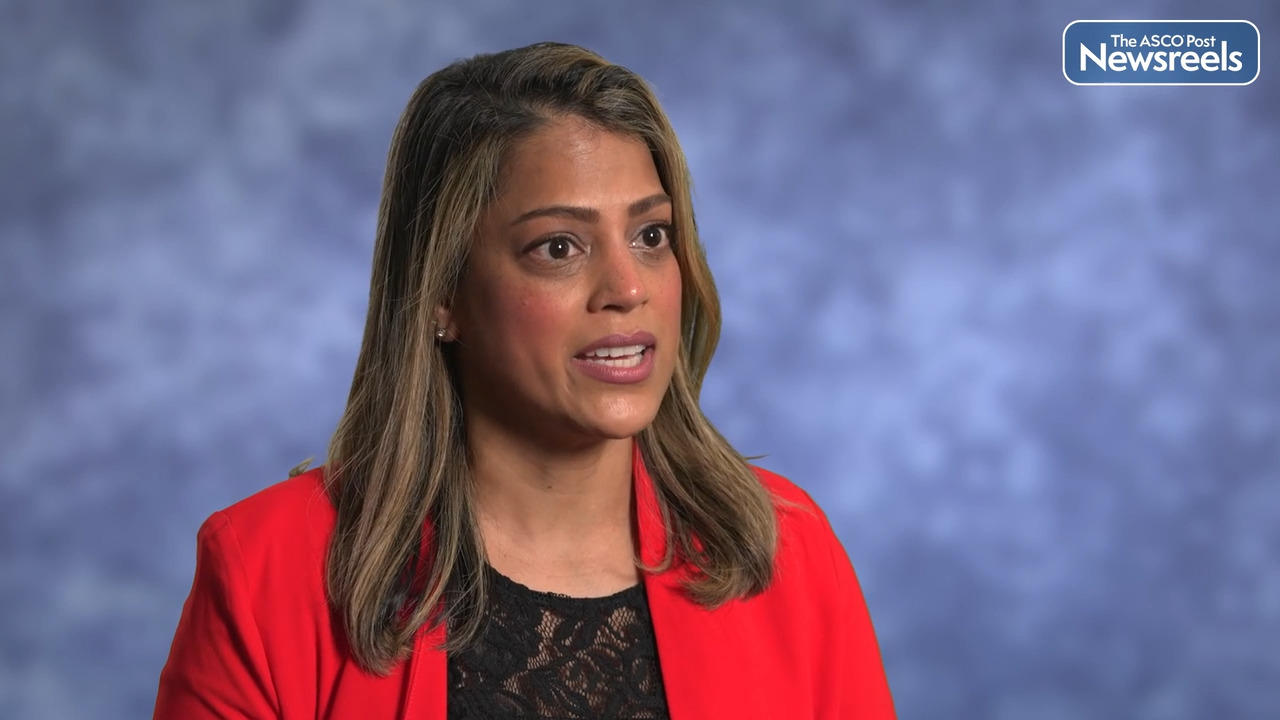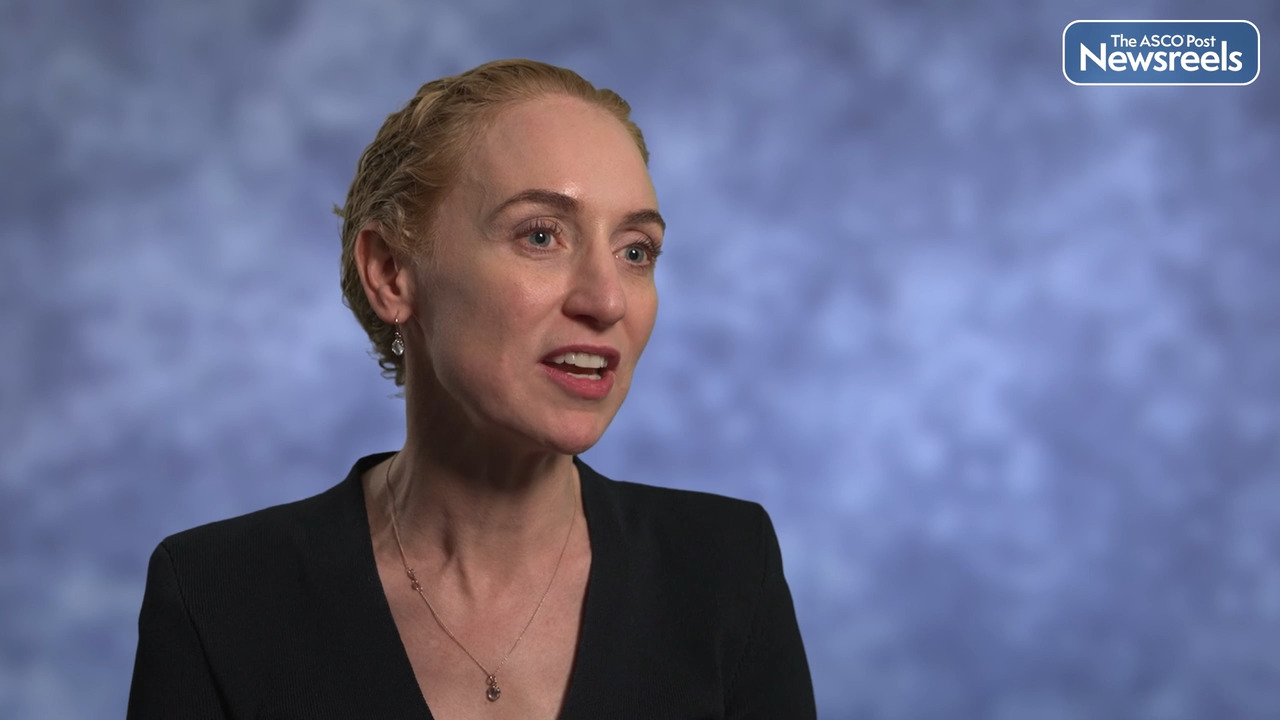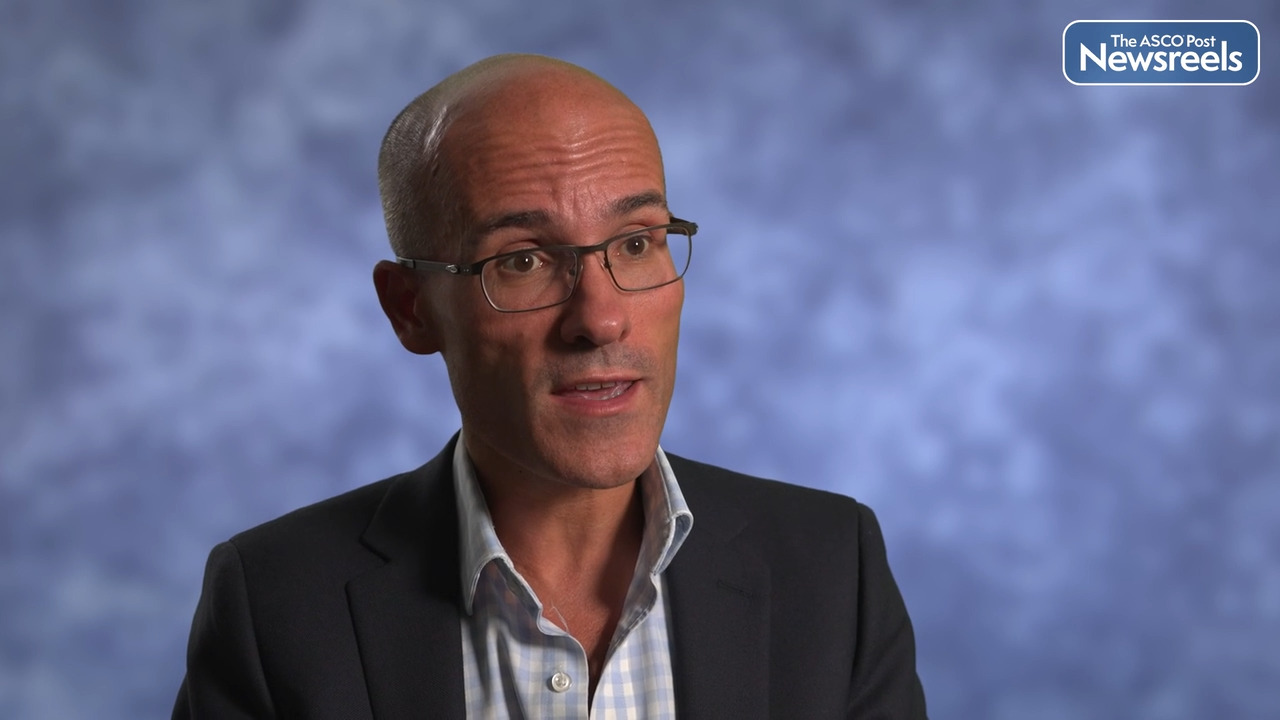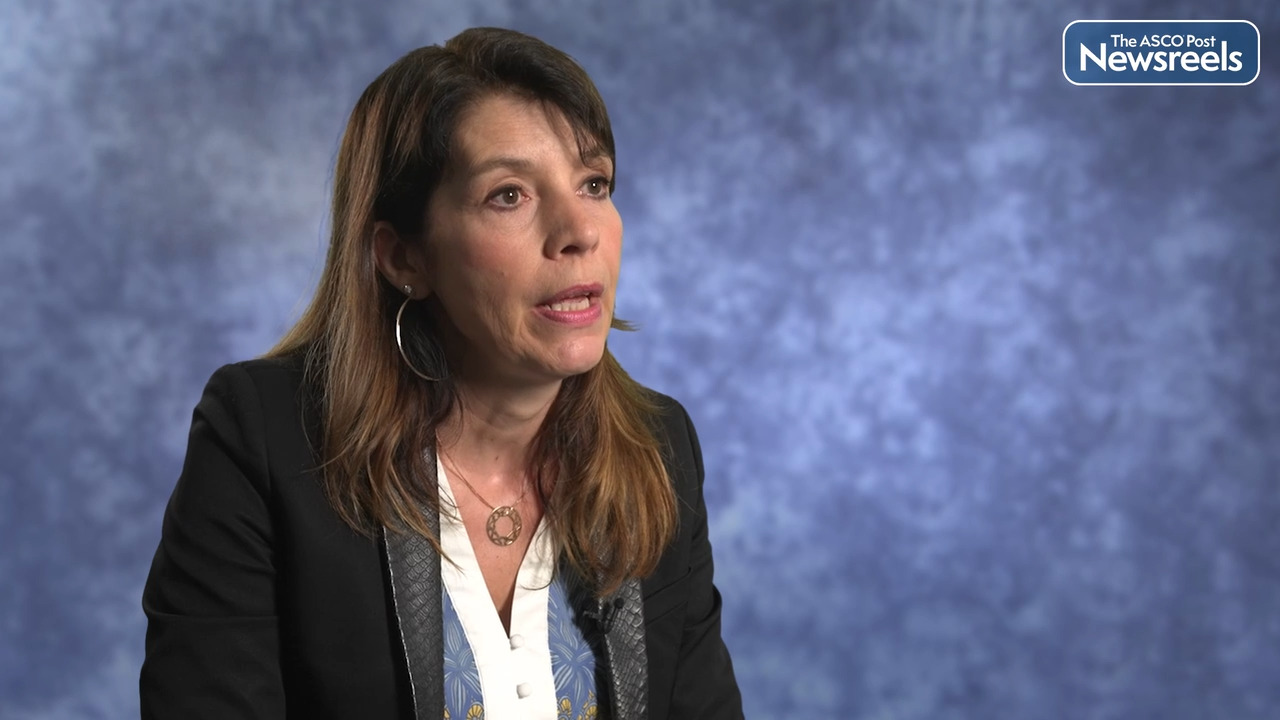Ana Oaknin, MD, PhD, on Cervical Cancer: Safety and Efficacy Results With Nivolumab and Ipilimumab
ESMO Congress 2022
Ana Oaknin, MD, PhD, of Barcelona’s Vall d’Hebron University Hospital, discusses findings from the CheckMate 358 trial, which showed that chemotherapy-free immunotherapy with nivolumab alone or in combination with ipilimumab may provide durable tumor regression with manageable toxicity in patients with recurrent or metastatic cervical cancer, regardless of tumor PD-L1 expression (Abstract 520MO).
Transcript
Disclaimer: This video transcript has not been proofread or edited and may contain errors.
CheckMate 358 is an ongoing Phase I/II study analyzing the role of nivolumab and nivolumab/ipilimumab combination in virus-associated cancer, including cervical cancer, regardless of PDL1 status. In the cervical cancer cohort, recovering metastatic cervical cancer patients were randomized into two arms, nivolumab plus ipilimumab in two different regimens: NIVO 1 IPI 3, or NIVI 3 IPI 1. These combinations were analyzed in the first-line setting and the second-line. The primary objective of the study was overall response rate and secondary objective progression-free survival, overall survival, and duration of response. The two-treatment combination show promising overall response rate, and remarkably, we observe greater responses when the patient received this combination of first-line therapy. Interestingly, the combination show responses regardless of PDL1 status. And when we saw the response rate in this combination were greater that we saw with nivolumab monotherapy.
In addition, PFS and overall survival were really, really promising. When we look at the median overall survival for those patients treated with NIVO 1 IPI 3, was around 20 months and interestingly 48% of the patients were alive up to NGS. However, this data should be interpreted with caution because the trial is not fully randomized and the population was a mixed population. The safety profile of the combination in this study was aligned with the previous reported data. We need to say that some adverse events, such as hepatitis and colitis seem to be higher for those patients treated with nivolumab 1 ipilimumab 3. But in conclusion, I can say that outcome from the NIVO 3 combination show very, very promising outcome, and it may be considered as a kind of chemotherapy free regimen for our patient with metastatic recurrent cervical cancer.
The ASCO Post Staff
Sapna P. Patel, MD, of The University of Texas MD Anderson Cancer Center, discusses the latest findings from the SWOG S1801 trial, which showed that using single-agent pembrolizumab as neoadjuvant therapy improved event-free survival compared to adjuvant therapy in high-risk resectable stage III–IV melanoma (Abstract LBA6).
The ASCO Post Staff
John B.A.G. Haanen, MD, PhD, of The Netherlands Cancer Institute, discusses recent phase III findings, which show that tumor-infiltrating lymphocytes (TILs) improve progression-free survival compared with ipilimumab by 50% in patients with advanced melanoma after not responding to anti–PD-1 treatment. Around 50% of TIL-treated patients had a response, and 20% had a complete response (Abstract LBA3).
The ASCO Post Staff
Georgina V. Long, MD, PhD, of the Melanoma Institute Australia, discusses results from the CheckMate 915 trial, an analysis of the pretreatment circulating tumor DNA, along with other clinical and translational baseline factors, and their association with disease recurrence in patients with stage IIIB–D/IV melanoma treated with adjuvant immunotherapy (Abstract 788O).
The ASCO Post Staff
Charles Swanton, PhD, of The Francis Crick Institute, discusses a newly discovered mechanism of action for air pollution–induced non–small cell lung cancer in which particles linked to climate change appear to promote cancerous changes. The finding might pave the way for new potential approaches to lung cancer prevention and treatment (Abstract LBA1).
The ASCO Post Staff
Christelle de la Fouchardiere, MD, of France’s Centre Léon Bérard, discusses phase III findings from the PRODIGE 65–UCGI 36–GEMPAX UNICANCER study, which evaluated whether the combination of gemcitabine and paclitaxel improves overall survival compared with gemcitabine alone in patients with metastatic pancreatic ductal adenocarcinoma after FOLFIRINOX failure or intolerance (Abstract LBA60).





